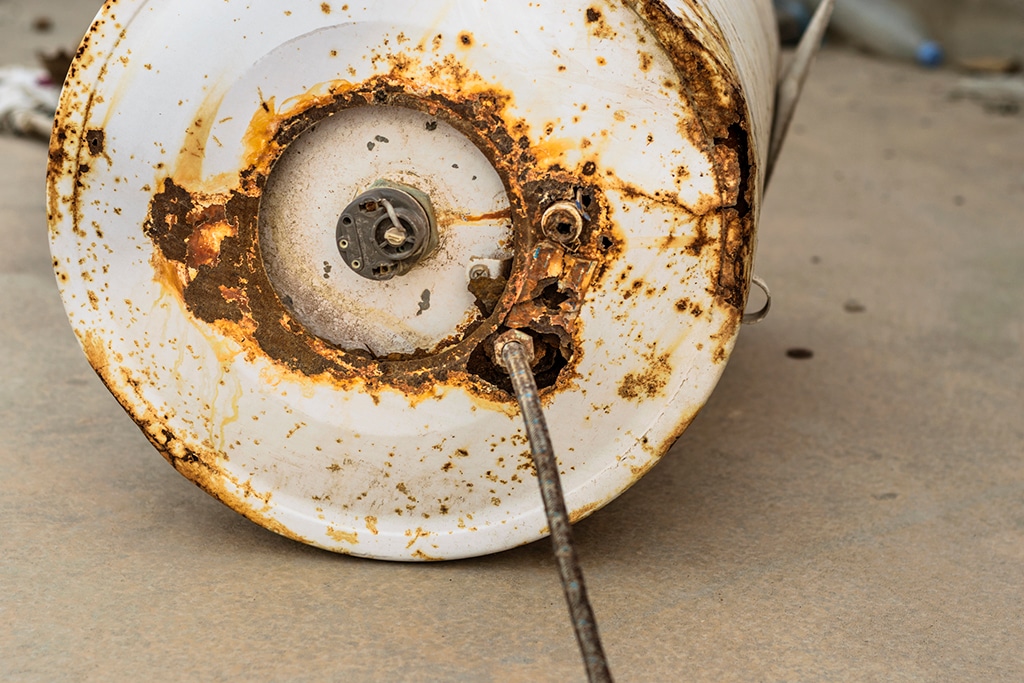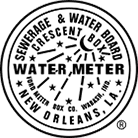
Water Heater Repair: Corrosion Can Spell Disaster For Your Water Heater | Harvey, LA
Photo By zms at istock
Corrosion means some definite bad news for your water heater. It is the gradual destruction of the metal body due to chemical reactions. While water heater corrosion can happen no matter what kind of water you have, the chances of electrochemical reactions are significantly higher with hard water.
The metal starts rusting due to reactions with impurities present in the water, leaving behind a residue that is enough to crack the body open. However, you can actually delay or eliminate chances of corrosion with timely maintenance and water heater repair from experts.
Why Is Water Heater Corrosion Dangerous?
Residential water heater corrosion can be dangerous for your family when you use water from a rusted heater. The rust in the heater is a result of oxygen and iron in the water coming in contact with the metal.
Over time, the rust from the heater body will start contaminating the water, and you might notice brownish water coming out of your taps. At times, it could be greenish if your heater has a copper or alloy metal body.
You will also notice a metallic smell in the water, and it will also taste pungent. When you use this water for your daily purpose, it could pose some health problems over time, especially for the children and the elderly in the family. Not hiring water heater repair experts at this point can be lead to greater problems.
How To Prevent Corrosion of Your Residential Water Heaters?
A water heater is designed to resist rusting and corrosion through some protective methods. However, they are only good if you opt for regular water heater repair from time to time.
Since the water heater’s interiors are lined with glass, there is a pressure relief valve above the tank that creates an air cushion without letting air enter the tank itself. There is a crucial component in the water heater, known as the sacrificial anode rod.
This rod runs through the tank and absorbs as much of the impurities and electrolytes as possible so that it is the rod that corrodes and the water heater body. However, the anode rod can only absorb the impurities for so long, and with repairs, you can change the rod to keep the actual tank in good shape for years. Ideally, replace the sacrificial anode rod every five to seven years.
Other Signs of Water Heater Corrosion
You may notice rust spots around the bottom of the tank. If you notice rust in the tank’s outer bottom area, it means that the rust has corroded and permeated through the body. It can also be because the utility room has too much moisture, and the tank is always exposed to water.
On the other hand, you may notice rust along the top. This localized rusting could be a cause of leaky pipes. Water might be dripping on the top of your tank, but you might not have noticed it because the leak was too slow, and the rusting has taken place over weeks or months. Only water heater repair experts can detect signs of corrosion early on.
Sedimentation in the water is a clear indication of water heater corrosion. Apart from the brownish water coming out of your faucets, you might also find some grainy substances from time to time. You might also hear gurgling noise emanating from the heater, and it could be a result of the water trying to find its way out of the sediment build-up blocking the outlet.
What Will Happen If You Neglect Water Heater Corrosion?
If you neglect water heater corrosion for too long, it might be beyond repair, and you might end up spending a ton of money to replace it. This is quite a waste of money since a regular water heater is meant to last for at least fifteen years or so.
You must try to get the most out of your investment by increasing the water heater’s longevity. However, putting off the water heater repair for too long will cause cracks in the body, with water leaking out of it.
Not only will you pay more for an extensive water heater repair job, if at all possible at this stage, you would also have to pay extra for your water bills at the end of the money for the extra water dripping out the heater. As a last resort, you would have to end up changing the entire unit.
When Should You Call Water Heater Repair Experts?
A corroding water heater can put the entire system at risk. It can weaken the metal body of the tank as well as the crucial connection points. Both gas-powered water heaters and tankless water heaters are likely to experience corrosion at some point. The heat exchanger and the gas burners of a gas water heater can be compromised and reduce the heating capacity.
Hence, when you notice a metallic taste in the water, you hear strange noises coming from inside the heater, or see water leaking from the heater, it is time to call the professionals.
Timely water heater repairs can often take care of issues like a malfunctioning heat exchanger or anode rod, or even if you notice rusting around the pressure relief valve. If the unit is already around fifteen years old, then the experts from Harvey, LA, will also replace the unit for you with a newer model.
Call Water Heater Experts at bluefrog Plumbing + Drain of New Orleans – Harvey, LA, Today!
Our water heater repair experts are just a phone call away, and they are trained in handling all kinds of heater corrosion. If you suspect your water heater has corroded, give us a call, and our experts will arrive for a quick inspection. They will talk to you about whether the heater is repairable or not and whether you need to change any components. Once they are done, you can go back to using clean hot water from a corrosion-free water heater again.










